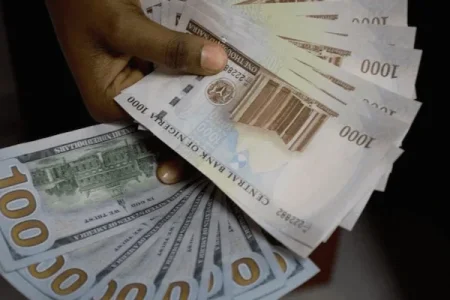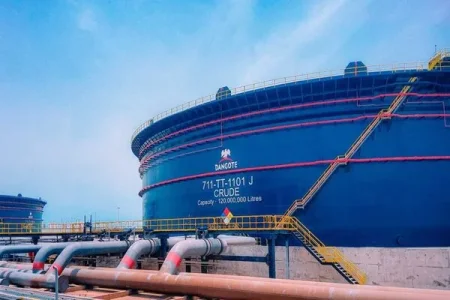
The naira appreciated to N1,480/$ in the parallel market on Monday, up 0.68% from June 7. However, it slightly depreciated to N1,483.62/$ at the FMDQ Exchange. The devaluation has boosted exports by making Nigerian goods cheaper for neighboring countries, according to the Nigeria Customs Service.
The naira experienced a slight appreciation in the parallel foreign exchange market on Monday. In Lagos, bureau de change (BDC) operators quoted the naira at N1,480 to the dollar, representing a 0.68 percent increase from the N1,490/$ rate on June 7. The buying price of the dollar was N1,450, while the selling price was N1,480, yielding a profit margin of N30.
Conversely, at the FMDQ Exchange, which manages official FX trading in Nigeria, the naira depreciated marginally by 0.02 percent, trading at N1,483.62/$ compared to N1,483.29/$ on June 7. During trading hours, the dollar fluctuated between N1,505 and N1,410/$. The official window recorded a daily turnover of $161.69 million.
The devaluation of the naira has had a positive impact on exports, according to the Nigeria Customs Service (NCS). Timi Bomodi, Customs Comptroller of the Seme Command, highlighted that the depreciation has made Nigerian goods more affordable for neighboring African countries. "As the value of the naira declines, Nigerian-made goods are seen as cheap within the region," Bomodi stated. This has encouraged buyers from neighboring countries to purchase more goods from Nigeria, thus boosting the local economy.
Bomodi acknowledged that while the high exchange rate negatively affects imports, it simultaneously creates opportunities for increased exports. "Though we face challenges in buying goods due to the high dollar rate, the devalued naira makes Nigerian goods attractive to foreign buyers," he added, emphasizing the overall positive impact on Nigeria's economy.




